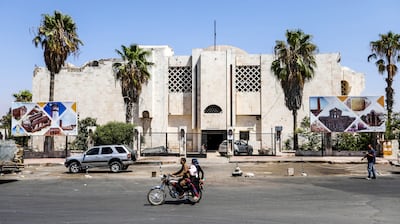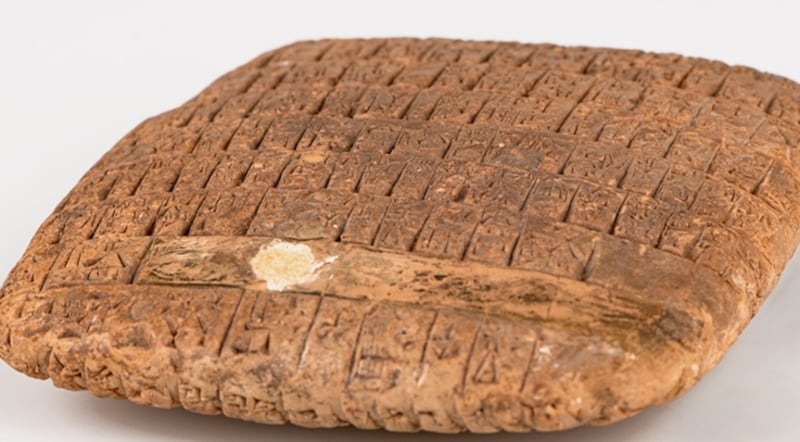A collector in Germany is being investigated after he was found with an artefact dating from 2350 BC that had been stolen from a museum in Syria.
The tablet, written using cuneiform, a system of writing used in the ancient Middle East, was taken from a museum in Idlib and is believed to have been illegally imported into Germany.
Idlib museum’s collection includes clay tablets dating back to the invention of the first alphabet.
The tablets were found during excavations in 1975 and are dated to the period from 2,350 to 2,250 BC and are “particularly sought after” said police and local prosecutors in a joint statement.
Air strikes and looting during Syria's ongoing civil war took a heavy toll on these items and the museum closed its doors in 2013.
Police in Baden-Wurttemberg said they found the item in the collection of a man living in the city of Heilbronn.
Officers also found ushabti figurines, also known as shabtis, which were buried in the tombs of pharaohs and other important people, and another cuneiform tablet, although its dating was not revealed.
“During investigations, the Baden-Wurttemberg State Criminal Police Office came across a man who claimed to have purchased a cuneiform tablet from an old Bavarian collection,” the authorities said.
“The man's information turned out to be incorrect. The investigation revealed that the artefact in question was allegedly illegally imported into Germany, circumventing embargo regulations, after it was stolen from the museum in Idlib, Syria, in 2015.
“The man, who comes from the Heilbronn district, stated that he had purchased the board as an investment and for possible resale.”
The items have been seized and prosecutors are currently examining whether laws protecting cultural assets have been broken.
A spokesman told The National that “investigations in these proceedings are currently still at an early stage”.

Syria's rich cultural heritage dates back to the Roman, Assyrian and Byzantine eras but much has been destroyed by fighting, including the World Heritage site of Palmyra, which was blown up by ISIS in 2015.
In 2015, the Syrian regime’s head of antiquities and museums said that about 15,000 antiquities locked away in safes around Idlib were at risk of being sold on the black market.
Maamoun Abdulkarim’s warning came as Al Qaeda-linked Nusra Front and other insurgents took the provincial capital for the first time in their conflict against President Bashar Al Assad.
"The armed groups kicked out the employees of the museum," he said at the time, adding that Syria's treasures could be smuggled and sold abroad in neighbouring Turkey.
"What has happened in Idlib is a true disaster. The worst catastrophe that has happened ... against the culture of Syria.”
Idlib’s museum eventually reopened in 2018 although Uzbek extremists affiliated with Hayat Tahrir Al Sham were reported to have destroyed seven statues.






